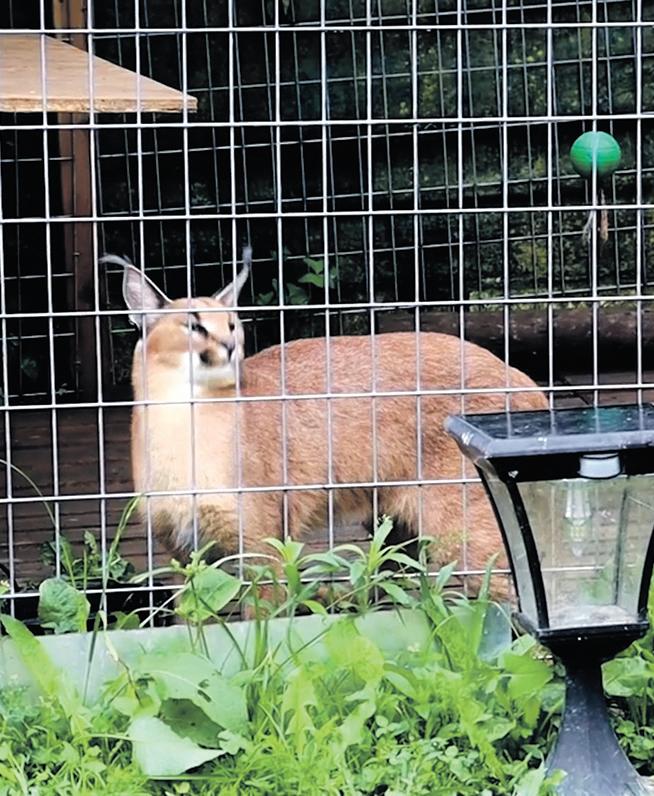
1 minute read
Two wild cats
It was clear that they were of the genus Caracal caracal (often called a Desert Lynx) and although not the scarce Iberian Lynx (and indeed not actually Lynx at all), these two cats were of a type found across Africa and the Middle East.
As such, they are a protected species under the Convention on International Trade in Endangered Species of Wild Fauna and Flora (CITES) and should not be traded as there was no CITES import permit or a captive breeding certificate.
Officers then contacted the couple in Toledo and discovered that there was no legitimate invoice nor any supporting documentation concerning the ‘pedigree’ of the two cats.
In the meantime, the two cats which were being kept in small outdoor cages were confiscated and it was decided that they needed to be kept in much better conditions.
A specialist team from the APP Primadomus Foundation, took charge of the cats which were transferred to a reception centre that the Foundation runs in Alicante Province.
Ukrainian border guards training
THE Guardia Civil has completed the first canine training course for Ukrainian border and customs guards in the detection of explosives, weapons and ammunition.
A report published on Friday, July 14, gave details of the Guardia Civil’s Cynological (the study of dogs) Service in which eight Ukrainian students have spent five months being trained as expert dog handlers.
The scheme was the brainchild of the Organisation for Security and Cooperation in Europe (OSCE) geared toward the training of Ukrainian border and customs guards to combat illicit arms trafficking.
The OSCE requested the training of Ukrainian personnel back in 2021. The aim was to train personnel from its member states in combating illicit trafficking in arms, especially small arms and light weapons.









